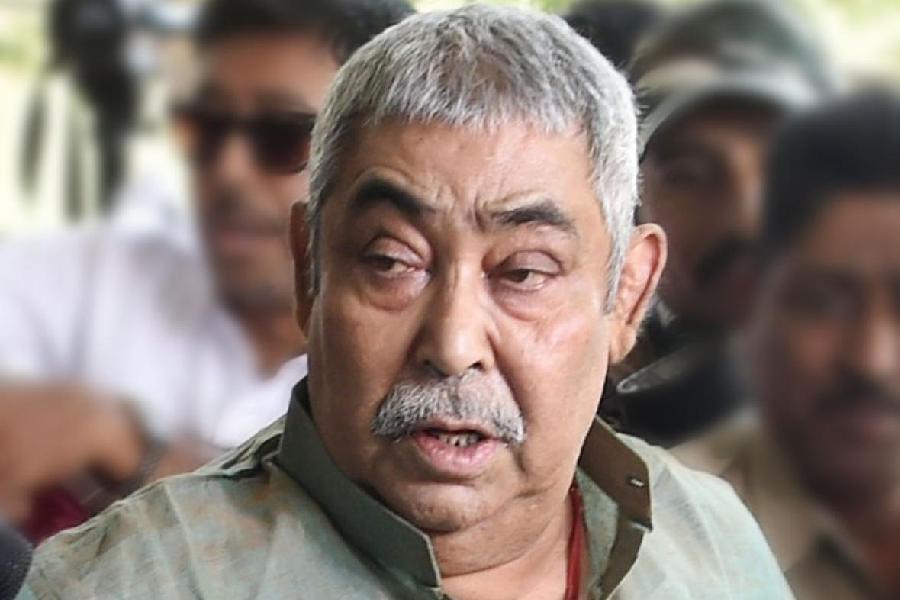Quoting a dialogue on the villain Gabbar Singh from the Hindi blockbuster "Sholay", the Supreme Court on Wednesday "confirmed" its earlier order staying the premature release of gangster-turned-politician Arun Gawli who is serving life imprisonment in a murder case.
A bench of Justices Surya Kant and Dipankar Dattamade absolute its June 3 order staying the operation of the April 5 order of the Bombay High Court's Nagpur bench and posted the appeals for hearing on November 20.
The high court had directed state authorities to consider Gawli's application for premature release under the 2006 remission policy.
"We are not inclined to grant any interim relief. The interim stay granted by us is confirmed. Post the appeals for hearing on November 20," the bench said.
At the outset, senior advocate Raja Thakare, appearing for the Maharashtra government, submitted that Gawli has over 46 cases, including around 10 cases of murder, against him.
The apex court asked the senior lawyer whether Gawli had done anything in last five to eight years.
Thakare replied that the gangster has been behind bars for over 17 years.
The bench then asked whether he is reformed or not. "How society will know that when he is behind the bars? He is 72 years old," it said.
Challenging the high court order, Thakare said there is a requirement under the Maharashtra Control of Organised Crime Act (MCOCA) for convicts to undergo imprisonment for at least 40 years for remission. This is as per the policy of 2015.
Senior advocate Nitya Ramakrishnan, appearing for Gawli, said other co-accused had been given bail in the matter and the Bombay High Court was right in granting premature release.
"The state government has changed its remission policy (in 2015) but your lordships have held that the policy will apply which was applicable when he was convicted. The 2006 policy will apply since he was convicted in 2009. This policy allows remission on account of age and infirmity," she said.
At this juncture, the bench observed,"But madam you should know that not everybody is Arun Gawli. In the movie 'Sholay', there is an iconic dialogue, 'So ja beta, nahi toh Gabbar aa jayega. This can be a case here'." Elaborating on Gawli's health condition, Ramakrishnan told the court that he is suffering from heart disease and has a lung defect.
To this, the counsel for the Maharashtra government said this was so because of continuous smoking for 40 years.
Ramakrishnan responded, "So what, you cannot keep him inside because of this. He is not on trial for smoking. The advisory board has certified that he is infirm at his age, therefore the 2006 policy would apply since he was convicted then. The later policy of 2015 cannot apply." On June 3, the top court stayed the operation of the April 5 order of the Nagpur bench of the Bombay High Court.
The bench had allowed Gawli's plea seeking a direction to the state government for his premature release on account of the remission policy dated January 10, 2006, prevailing on the date of his conviction on August 31, 2012.
Gawli, who is undergoing life imprisonment for the 2007 murder of Mumbai Shiv Sena corporator Kamlakar Jamsandekar, claims to have complied with all the conditions of the 2006 policy.
Gawli has contended that he is of advanced age and has been certified as weak by the medical board, making him eligible for availing the benefit of the remission policy.
Gawli, who shot into prominence from Dagdi Chawl, a neighbourhood of Byculla, is the founder of the Akhil Bharatiya Sena. He was an MLA from 2004-2009 from the Chinchpokli seat of Mumbai.
He was arrested in 2006 and was put on trial for the murder of Jamsandekar. In August 2012, a sessions court in Mumbai sentenced him to life imprisonment in the case and imposed a fine of Rs 17 lakh on him.
Except for the headline, this story has not been edited by The Telegraph Online staff and has been published from a syndicated feed.












